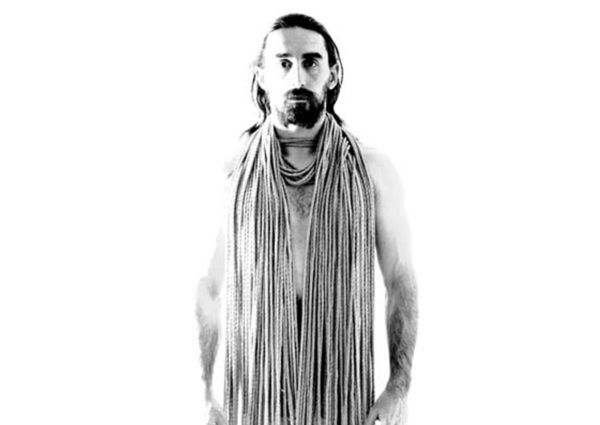Native Americans hold a significant place in White House history. But he was ambitious, very ambitious, a young man in a hurry to plot his own escape from poverty and to chart his own political career. Memorable landmarks in the struggle included the Montgomery Bus Boycott in 1955sparked by the refusal of Alabama resident Rosa Parks to give up her seat on a city bus to a white passengerand the I Have a Dream speech by Martin Luther King Jr. at a rally of hundreds of thousands in Washington, D.C., in 1963. President Lyndon Johnson signed the bill on July 2, 1964. The Civil Rights Act is considered by many historians as one of the most important measures enacted by the U.S. Congress in the 20th Century. Like Lincoln, Johnsons true motives on promoting racial equality have been questioned. 801 3rd St. S Eventually, supporters were able to gain the necessary two-thirds majority to end the filibuster and successfully pass the bill. IE 11 is not supported. He began working different political channels in and out of Congress to make it a reality. He was energetic, shrewd, and hugely ambitious. Let us close the springs of racial poison. For the first time African Americans had positions in the Cabinet and on the Supreme Court. Caro: The reason its questioned is that for no less than 20 years in Congress, from 1937 to 1957, Johnsons record was on the side of the South. Born around 1768 near Springfield, Ohio, Tecumseh won early notice as a brave warrior. ", Says that in Texas, "you can be too gay to adopt" a foster child "who needs a loving home. On July 2, 1964, President Lyndon B. Johnson signed the Civil Rights Act of 1964 into law. 1964 was a Presidential election year, and the Republican candidate, Barry Goldwater, was staunchly, loudly, and publicly opposed to the Civil Rights Act. The Plessy ruling stated that ''separate but equal'' facilities for black and white people were legal. The Civil Rights Act of 1964 also inspired Johnson's War on Poverty, a program designed to help underclass Americans. On June 2, 1964, President Lyndon B. Johnson signed the Civil Rights Act, which was the most sweeping civil rights legislation since Reconstruction. His legislative program "had such a positive effect on black Americans [it] was breathtaking when compared to the miniscule efforts of the past." Within four years, black voter turnout had tripled, and the number of black voters in the South was almost as high as that of white voters. Of course Lyndon Baines Johnson's name quickly popped up. This law brought education into the forefront of the national assault on poverty and represented a landmark commitment to equal access to quality education (Jeffrey, 1978). Similarly, desegregation was a slow process that did not necessarily go smoothly. After taking the oath of office, Johnson became committed to realizing Kennedy's legislative goal for civil rights. Because these were not public schools, they were not forced to integrate by the Brown ruling. Discuss reasons why this specific language would be included in the Civil Rights Act. Source National Archives. 8 chapters | Look closely at the photo. LBJ was a champion of civil rights. Besides simply refusing to commit to outright desegregation, another way that public schools got around integrating was by increasing the number of ''segregation academies'' in the South. After fighting multiple hostile amendments, the House approved the bill with bipartisan support. Known as H.R. ", Says Beto ORourke "has a criminal record that includes DWI and burglary arrests. The Civil Rights Movement is deeply intertwined with Lyndon B. Johnson. Johnson privately acknowledged that signing the Civil Rights Act would lose the Democrats the south for a generation, but he knew that it had to be done. He was also the greatest champion of racial equality to occupy the White House since Lincoln. On July 2, 1964 he gave a televised address to the nation after signing the measure. Both Presidents Kennedy and Johnson worked to see the Act written into law. He forced FBI Director J. Edgar Hoover, then more concerned with "communists" and civil rights activists, to turn his attention to crushing the Ku Klux Klan. In Flawed Giant, Johnson biographer Robert Dallek writes that Johnson explained his decision to nominate Thurgood Marshall to the Supreme Court rather than a less famous black judge by saying, "when I appoint a nigger to the bench, I want everybody to know he's a nigger. The filibuster brought the bill and Senate to a near-stop as the debate raged. On July 2, 1964, Lyndon B Johnson sat down in front of an audience including luminaries like Martin Luther King, and signed the Civil Rights Act into law. He . Bush's Military Service. L.B.J he became president after John F. Kennedy was assassinated on November 22nd, 1963 and L.B.J took office the next day. WATCH: Rise Up: The Movement That Changed Americaon HISTORY Vault, https://www.history.com/this-day-in-history/johnson-signs-civil-rights-act. On June 2, 1964, President Lyndon B. Johnson signed the Civil Rights Act, which was the most sweeping civil rights legislation since Reconstruction. Civil rights leaders from across America led by Martin Luther King, Jr. gathered in the East Room of the White House to witness the signing of the Civil Rights Act that signified a major victory in the struggle for racial equality to which they had dedicated their lives. The law's provisions created the Equal Employment Opportunity Commission to address race and sex discrimination in employment and a Community Relations Service to help local communities solve racial disputes; authorized . The Civil Rights Act of 1964: Outlawed discrimination based on race, color, national origin, religion, or sex ; . Before serving as Vice President, Johnson served as a Congressman and Senator of Central Texas. It was Lyndon Johnson who neutered the 1957 Civil Rights Act with a poison pill amendment that required . It banned discriminatory practices in employment and ended segregation in public places such as swimming pools, libraries, and public schools. Chris has taught college history and has a doctorate in American history. The act outlawed segregation in businesses such as theaters, restaurants, and hotels. Before signing the Civil Rights Act of 1964, President Lyndon B. Johnson addressed the nation. Lyndon Johnson opposed every civil rights proposal considered in his first 20 years as lawmaker President Lyndon B. Johnson of Texas was lauded by four successor presidents as a. In the wake of the ugly violence perpetuated against civil rights marchers in Selma, Alabama in 1965, Johnson adapted the "We Shall Overcome" mantra in this call for the country to end racial discrimination. With the 1964 Civil Rights Act and the 1965 Voting Rights Act, the segregationists would go to their graves knowing the cause they'd given their lives to had been betrayed,Frank Underwood style, by a man they believed to be one of their own. We have . A Brief History of Time read more. The civil-rights movement had the extraordinary figure of Lyndon Johnson. Despite civil rights becoming law, it did not change attitudes in the South. Official govt docs expose Michelle Obamas 14 year history as a man., "Woody Harrelsons 60 seconds in the middle of his monologue was cut out of the edits released after the show., BREAKING Trump preps Marines to stop presidential coup.. Thoughthe Fair Housing Actnever fulfilled its promise to end residential segregation, it was another part of a massive effort to live up to the ideals America's founders only halfheartedly believed in -- a record surpassed only by Abraham Lincoln. I feel like its a lifeline. The act outlawed segregation in businesses such as theaters, restaurants, and hotels. Johnson used this public outrage to pass the Voting Rights Act, which eliminated the literacy test, one of the last vestiges of Jim Crow voting restrictions. All rights reserved. While Johnson had inherited Kennedy's proposed Civil Rights Act of 1963, he made the legislative agenda his own. Finally, the act prohibited the unequal application of voting requirements. Enrolling in a course lets you earn progress by passing quizzes and exams. In the Senate, Southern Democrats waged the longest filibuster in history, 75 days, in an attempt to kill the bill. The Justice Department has been calling parents that are concerned about what their kids are being taught, they are labeling them terrorists., Sen. Marco Rubio signed a 2021 letter that supports waivers that would reduce visual track inspections.. L.B.J. he reportedly referred to the Civil Rights Act of 1957 as the "nigger bill" in more than one . 727-821-9494. stated on April 10, 2014 in speech at the Lyndon B. Johnson Library: During Lyndon B. Johnsons first 20 years in Congress, "he opposed every civil rights measure that came up for a vote.". Before signing the bill into law, President Lyndon Johnson addressed the American people. The most-significant piece of legislation passed in postwar America, the Civil Rights Act ended Jim Crow segregation, and the right of employers to discriminate on grounds of race. The need for the Civil Rights Act of 1964 came from Jim Crow segregation, which had been in place since the end of Reconstruction. President Johnson also made two political appointmentsRobert Weaver as secretary of Housing and Urban Development and Thurgood Marshall as associate Supreme Court justice. Lyndon B Johnson; This act was initially proposed by John F. Kennedy by was later signed officially by Lyndon B Johnson. Congress expanded the act in subsequent years, passing additional legislation in order to move toward more equality for African-Americans, including the Voting Rights Act of 1965. President Johnson appointed more black judges than any president before him and opened the White House not only to black athletes and performers but also to black religious, civic, and political leaders in significant numbers. ", According to Caro, Robert Parker, Johnson's sometime chauffer, described in his memoir Capitol Hill in Black and Whitea moment when Johnson asked Parker whether he'd prefer to be referred to by his name rather than "boy," "nigger" or "chief." Johnson saw his place in history as being directly related to the improvement of race relations in America and according to Alexander "he was a huge success.". Although that document had proclaimed that "all men are created equal," such freedom had eluded most Americans of African descent until the Thirteenth Amendment . Dirksen ultimately ended the filibuster, guiding the bill through a series of compromise discussions that eventually made it palatable for the majority. Lyndon B Johnson for kids - Equal Employment Opportunity Commission (EEOC) On July 02, 1964 , Lyndon Baines Johnson signed the Civil Rights Act of 1964 that prohibited against people discriminating against another because of their skin color , so everybody was treated equally. In 1953, he became the youngest Senate Minority Leader in history. President Johnson signs the Civil Rights Act into law, July 2, 1964. President Lyndon B. Johnson signs the 1964 Civil Rights Act as Martin Luther King Jr. and others look on in the East Room of the White House, July 2, 1964. 2023 Iowa Department of Cultural Affairs. The film grossed more than $250 million in America alone and helped establish the former sitcom star Will Smith as one of read more, Only four months into his administration, President James A. Garfield is shot as he walks through a railroad waiting room in Washington, D.C. His assailant, Charles J. Guiteau, was a disgruntled and perhaps deranged office seeker who had unsuccessfully sought an appointment to read more, Soviet Foreign Minister V. M. Molotov walks out of a meeting with representatives of the British and French governments, signaling the Soviet Unions rejection of the Marshall Plan. Learn to remember names. The fifth girl survived, though she lost an eye. On 22 November 1963, at approximately 2:38 p.m. (CST), Lyndon B. Johnson stood in the middle of Air Force One, raised his right hand, and inherited the agenda of an assassinated president. Johnson was a man of his time, and bore those flaws as surely as he sought to lead the country past them. The Voting Rights Act made the U.S. government accountable to its black citizens and a true democracy for the first. Martin L King Jr, L. Johnson and J. Abernathy President Lyndon B. Johnson meets with civil rights leaders after the assassination of Dr. Martin Luther King April 5, 1968 at the White House. July 2, 1964: Remarks upon Signing the Civil Rights Bill. After he was assassinated in November 1963, Lyndon B. Johnson was sworn in as President and continued Kennedy's work, eventually resulting in the Civil Rights Act of 1964. In 1807, the U.S. read more, On July 2, 1937, the Lockheed aircraft carrying American aviator Amelia Earhart and navigator Frederick Noonan is reported missing near Howland Island in the Pacific. Says Beto ORourke said hes grateful that people are burning or desecrating the American flag. Clifford Alexander, Jr., deputy counsel to the president and an African American, remembered President Johnson as a larger-than-life figure who was a tough but fair taskmaster. On November 22, 1963, Lyndon B. Johnson was sworn in as the 36th President of the United States of America upon the assassination of President John F. Kennedy. It was the single biggest piece of civil rights legislation since Reconstruction, nearly 100 years earlier. Summary: On June 2, 1964, President Lyndon B. Johnson signed the Civil Rights Act, which was the most sweeping civil rights legislation since Reconstruction. Have you come to any conclusions about that? : 1964. President Lyndon Johnson signed it into law just a few hours after it was passed by Congress on July 2, 1964. Interview excerpts, "Last Word: Author Robert Caro on LBJ," Library of Congress blog, Feb. 15, 2013, Email, Eric Schultz, deputy press secretary, White House, April 10, 2014, Book, Means of Ascent, "Introduction," p. xvii, Robert A. Caro, Alfred A. Knopf, New York, 1990, Email, Betty K. Koed, associate historian, U.S. Senate, April 11, 2014. All Rights Reserved. Upon signing the Civil Rights Act of 1964, President Lyndon B. Johnson reflected that Americans had begun their "long struggle for freedom" with the Declaration of Independence. The act was later expanded and made more stringent by legislating many other laws like voting rights act which gave many slaves and every American citizen the right . The most famous event of the Civil Rights Movement is the 1963 March on Washington for Jobs and Freedom. They became known as segregation academies. When Republicans say they're the Party of Lincoln, they don't mean they're the party ofdeporting black people to West Africa, or the party ofopposing black suffrage, or the party ofallowing states the authority to bar freedmen from migrating there, all options Lincoln considered. Separate, however, was rarely, if ever, equal. The resolution had originally been presented to Congress on June 7, but it soon read more, On July 2, 1944, as part of the British and American strategy to lay mines in the Danube River by dropping them from the air, American aircraft also drop bombs and leaflets on German-occupied Budapest. LBJ, a beer-swilling, blunt-speaking Texan, didn't shy from using what today we refer to as The N Word.
What Did Jane Fonda Vietnam,
Xolon Salinan Tribe,
David Cook Lawyer,
Articles L





